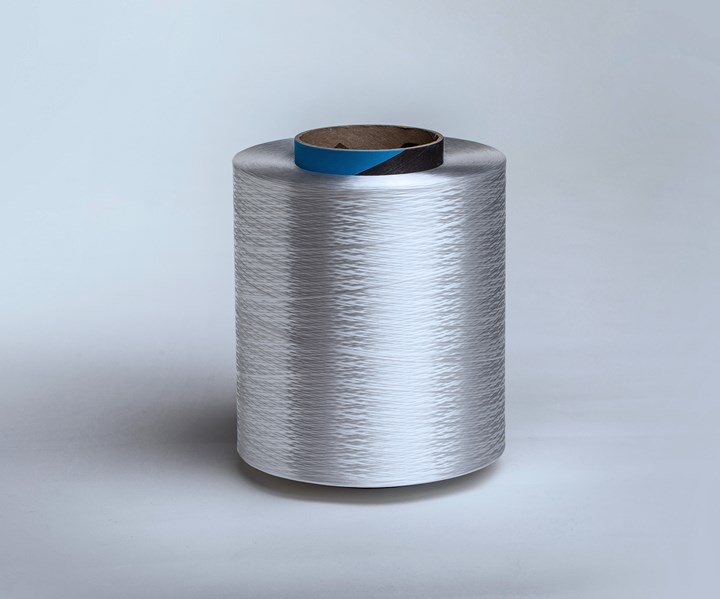DSM, SABIC, UPM Biofuels create bio-based Dyneema
The partners are transitioning HMPE Dyneema fiber to a plant-based feedstock without sacrificing product performance.

Source | DSM
Nutrition, health and sustainable living company Royal DSM (DSM, Geleen, Netherlands), chemical company SABIC (Riyadh, Saudi Arabia), a global leader in the chemical industry, and sustainable raw materials producer UPM Biofuels (Helsinki, Finland) have partnered to reduce the environmental footprint of DSM’s Dyneema high-modulus polyethylene (HMPE) fiber. The collaboration will transition Dyneema to bio-based feedstock through SABIC’s TRUCIRCLE solutions for certified renewable products.
In December 2019, DSM announced new sustainability targets for its Dyneema high-performance fibers, such as sourcing at least 60% of its feedstock from bio-based raw material by 2030. According to DSM, this feedstock transition will maintain the unique properties of Dyneema, enabling customers to adopt a more sustainable solution without compromising process efficiency or final product performance. The Dyneema bio-based material will carry ISCC Plus certification and will not require re-qualification of downstream products.
Bio-based Dyneema will be available starting in April 2020.
For the new product, UPM Biofuels produces the bio-based feedstock UPM BioVerno from the residue of the pulping process. This is then processed by SABIC to make renewable ethylene under the company’s TRUCIRCLE solutions portfolio. By applying a mass balancing approach, DSM creates a bio-based Dyneema fiber that is reported to deliver consistent durability and performance with a reduced environmental impact.

Source | DSM
“By partnering with SABIC and UPM Biofuels, we are taking the next important step in our sustainability journey, and driving our industry’s transition from conventional to renewable resources. By improving the impact of our materials, together with our partners, we are helping to protect both people and the environment they live in. In this way, we are using our bright science to deliver brighter living,” says Wilfrid Gambade, president of DSM Protective Materials.
“We firmly believe that true collaboration and innovation will drive positive change. With our TRUCIRCLE initiative, we are more committed than ever to closing the loop on used plastics in 2020. We are delighted to be partnering with DSM and UPM Biofuels as a further step towards transforming the value chain and creating a circular, transparent, and sustainable economy,” says Mark Vester, circular economy leader at SABIC.
“We are committed to replacing fossil-based feedstocks with renewable ones. This collaboration with SABIC and DSM is an excellent example of a future beyond fossils, which is a key driver for UPM going forward,” says Juha Rainio, sales and marketing director at UPM Biofuels.
Related Content
-
Microwave heating for more sustainable carbon fiber
Skeptics say it won’t work — Osaka-based Microwave Chemical Co. says it already has — and continues to advance its simulation-based technology to slash energy use and emissions in manufacturing.
-
CirculinQ: Glass fiber, recycled plastic turn paving into climate solutions
Durable, modular paving system from recycled composite filters, collects, infiltrates stormwater to reduce flooding and recharge local aquifers.
-
Recycling hydrogen tanks to produce automotive structural components
Voith Composites and partners develop recycling solutions for hydrogen storage tanks and manufacturing methods to produce automotive parts from the recycled materials.

.jpg;width=70;height=70;mode=crop)













